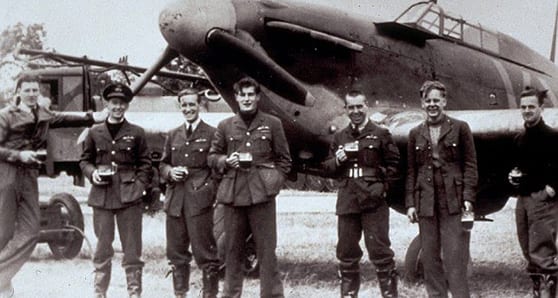Ultimately, though, disagreement surfaced. The trigger was conscription and the division was between Quebec and English Canada
 Canada went to war 80 years ago this September.
Canada went to war 80 years ago this September.
The formal declaration came on Sept. 10, a week after the United Kingdom and France had declared war in response to the German invasion of Poland. In taking the United Kingdom’s side, Canada joined three other dominions – Australia, New Zealand and South Africa.
Canada was under no obligation to fight. It could’ve stayed neutral.
The 1931 Statute of Westminster had changed the game regarding relations with the United Kingdom. To quote Canadian historian Norman Hillmer, it was “the founding document of the Commonwealth, establishing the supremacy of the Canadian Parliament and conferring on Canada and the other British dominions of Australia, New Zealand, South Africa, and the Irish Free State as much legal independence as they wished to exercise.”
Although Canadians weren’t anxious to go to war, there wasn’t much doubt they would. Only three MPs voted against the parliamentary resolution.
And Prime Minister William Lyon Mackenzie King had taken pains to soothe any fears by promising that nobody would be conscripted to fight overseas. That would be a matter for volunteers, of which there were plenty.
Some 1.1 million Canadians served during the war. Roughly 43,000 were killed, and around 54,000 were wounded. For a country with a then-population of about 11 million, it was a substantial effort.
There was also a moment of truth.
German successes in the spring of 1940 raised the spectre of British capitulation. Perhaps Adolf Hitler would be in London by Christmas, thereby complementing his June triumph in France.
If there was a time to detach, this was it. After all, why stick around for a lost cause?
Canada, however, didn’t choose to do that. Quite the contrary.
In June 1940, the National Resources Mobilization Act was passed. Canada was significantly upping its game.
In addition to taking a direct part in the hostilities, Canada became a scaled-up supplier of armaments and food to the Allies. And through the British Commonwealth Air Training Plan, it was a major training base for over 130,000 Allied airmen.
All three services saw serious combat overseas.
The Royal Canadian Navy played a key role in protecting convoys carrying supplies across the Atlantic. By war’s end, Canada had the third largest naval force in the world.
The Royal Canadian Air Force enlisted some 250,000 Canadians, 23 of whom lost their lives during the Battle of Britain in 1940.
For Canadian ground troops, the early disastrous encounters in Hong Kong and Dieppe provided an inauspicious blooding, but subsequent European campaigns were more successful. Beginning with the invasion of Sicily in the summer of 1943, Canadians slogged through Italy, France, Belgium and Germany, culminating in the 1945 liberation of Holland.
Domestically, though, disagreement surfaced. The trigger was conscription and the division was between Quebec and English Canada.
Faced with the increasing demand for troops to be deployed overseas, a referendum was held in April 1942. The ballot question pertained to releasing the government from its prior pledge of no conscription for overseas service. Or, as Mackenzie King gingerly put the case, “Conscription if necessary, but not necessarily conscription.”
Quebec voted overwhelmingly “No” – thus declining to release the government from its pledge – while English Canada decisively voted “Yes.” Quebec’s 73 percent “No” stood in sharp contrast to Ontario’s 84 percent “Yes.”
As events transpired, relatively few conscripts were dispatched overseas and those who went were too late to see significant action. But the schism was stark.
The difference was exemplified by two politicians who later ascended to power in the 1960s.
Pierre Trudeau opposed Canadian participation in the conflict, seeing it as a “settling of scores among the superpowers” rather than a “just war.” In taking this position, Trudeau was probably influenced by his youthful flirtation with ethnically-based Catholic nationalism and what’s been described as “a fascist-type secret organization” led by a couple of Jesuit priests.
In contrast, John Robarts – Ontario premier from 1961 to 1971 – put his law studies on hold and joined the Navy. As a young officer, he saw action in the Atlantic, the Mediterranean and the Pacific.
On an August day five summers ago, I stood on Juno Beach – where thousands of Canadians came ashore on D-Day – and wondered if many of us would be up to a similar challenge now. I don’t know the answer to that question.
Pat Murphy casts a history buff’s eye at the goings-on in our world. Never cynical – well, perhaps a little bit.
For interview requests, click here.
The opinions expressed by our columnists and contributors are theirs alone and do not inherently or expressly reflect the views of our publication.
© Troy Media
Troy Media is an editorial content provider to media outlets and its own hosted community news outlets across Canada.


